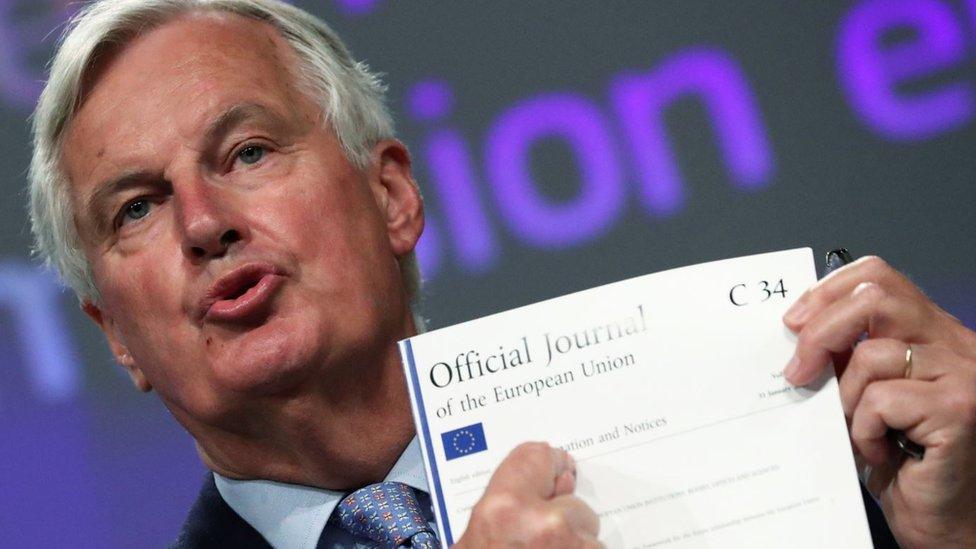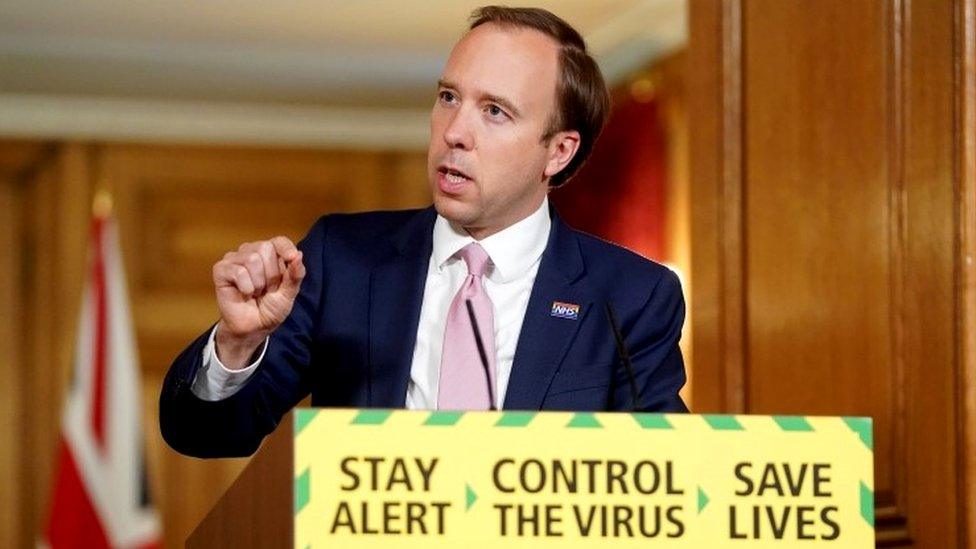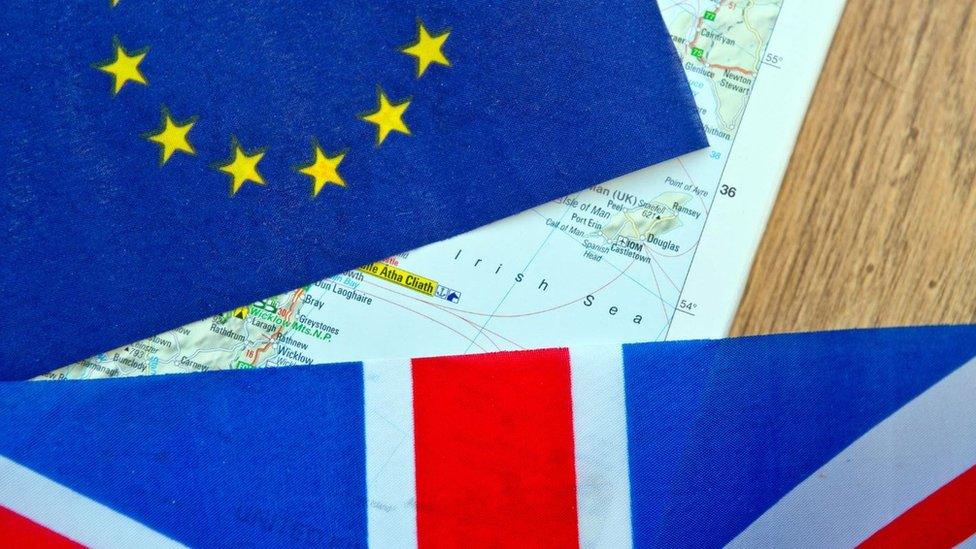Brexit: Doubts over UK's commitment to unfettered trade
- Published

Michel Barnier called on the UK to show more "respect" for the terms laid out between the two sides
The EU's chief Brexit negotiator has raised doubts about the UK government's commitment to have "unfettered trade" between NI and the rest of the UK.
The prime minister has promised no new paperwork for trade moving from NI-GB.
But Michel Barnier suggested a piece of administration known as an exit declaration will be required.
He said the UK government's pledge not to require the declaration was "incompatible" with legal commitments made in the Brexit deal.
Whether or not this particular piece of administration will be required on NI-GB trade had been the subject of confused, sometimes contradictory, statements by ministers and senior officials in the UK.
It was this paperwork which the prime minister suggested Northern Ireland businesses could throw in the bin.
Last month the UK government published its plan for implementing the Northern Ireland part of the Brexit deal and said these declarations would not be required.
But speaking on Friday, after the latest round of trade talks, Mr Barnier said this was not the EU's view on how the deal should be implemented.
He said: "Some of the objectives set out in this (UK) paper such as avoiding exit declarations on goods moving from Northern Ireland to Great Britain are incompatible with the legal commitments accepted by the UK in the protocol.
"We really need to work more on the technical details, only the precise and rigorous implementation of the withdrawal agreement can create the confidence we need to build our future partnership."
Mr Barnier called on the UK to show more "respect" for the terms laid out between the two sides.
"No significant progress" had been made in the latest round of talks, he told reporters in Brussels.
The UK said the talks had been "positive" and it remained "committed to a successful outcome".
The UK has until the end of June to ask for the "transition period" - keeping it in the single market and customs union - to be extended into next year.
But Prime Minister Boris Johnson has ruled out seeking an extension.
- Published5 June 2020

- Published30 May 2020

- Published5 June 2020
